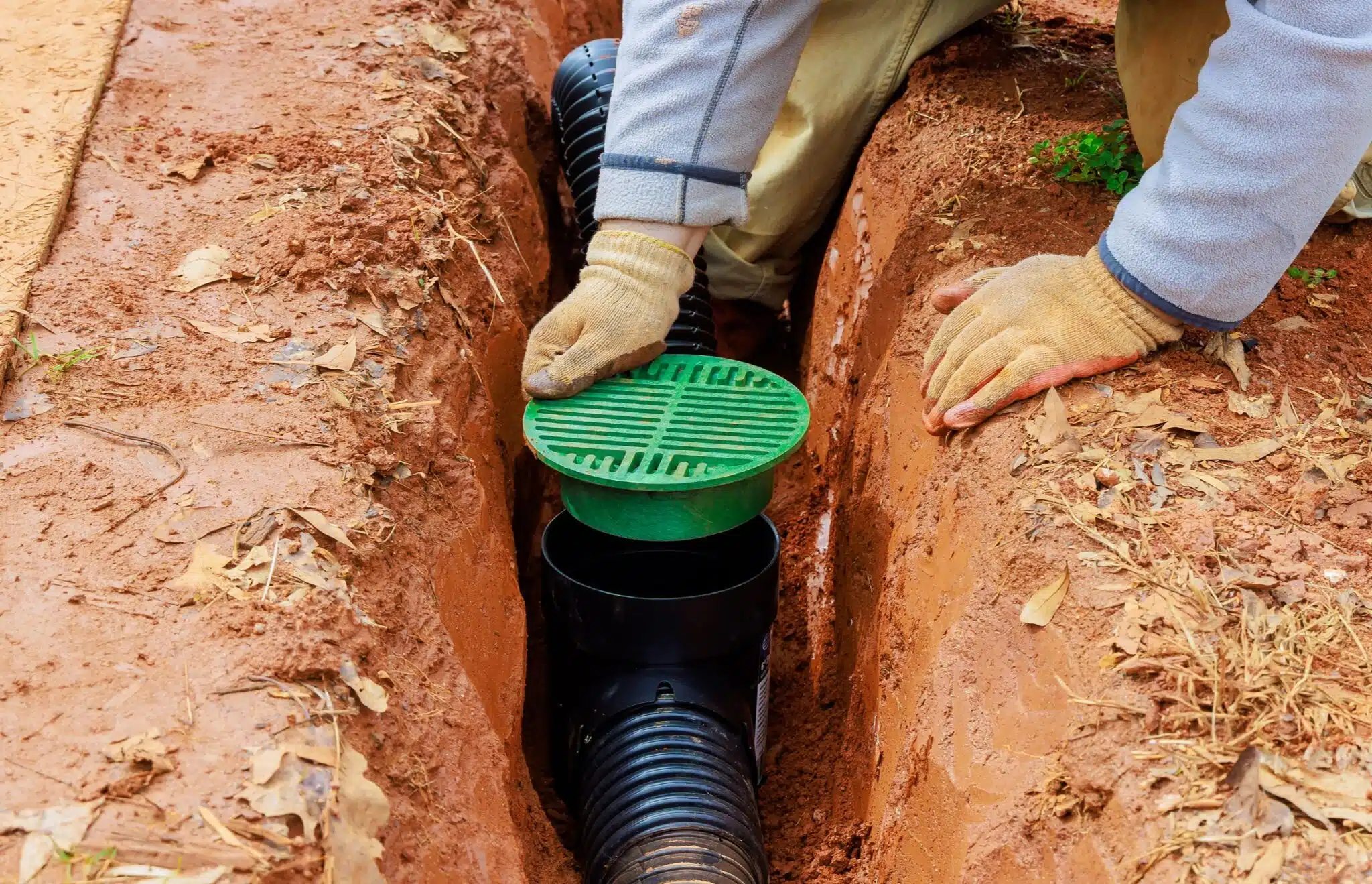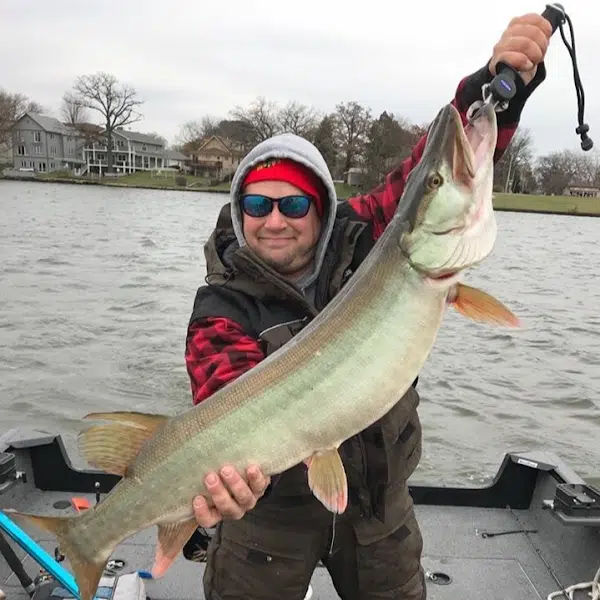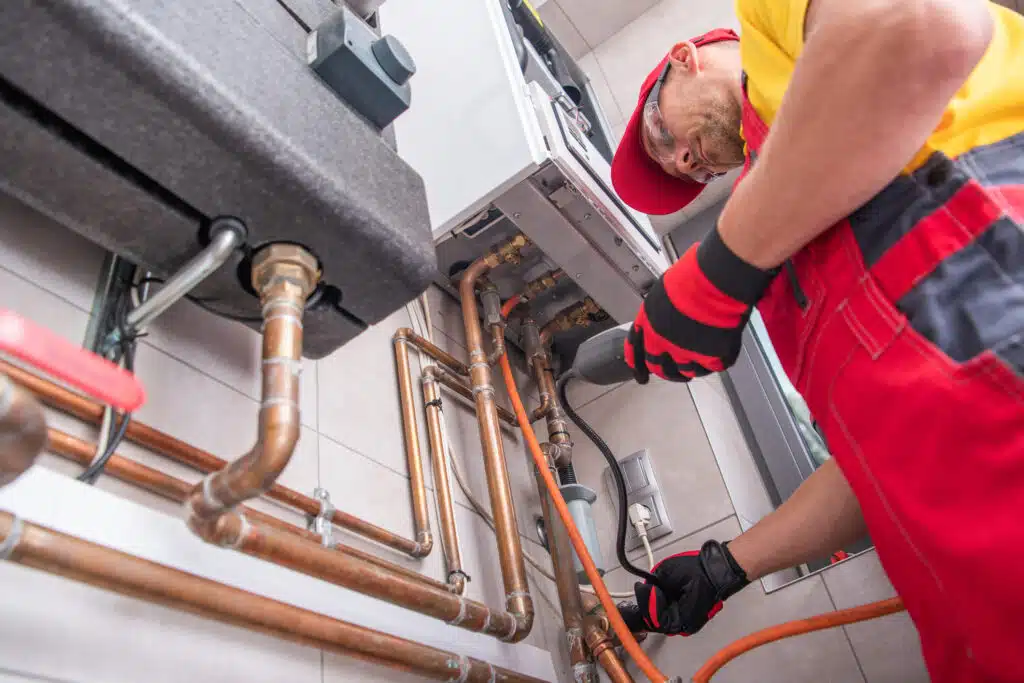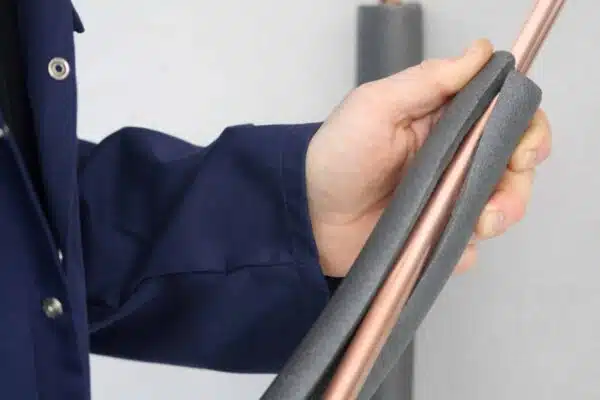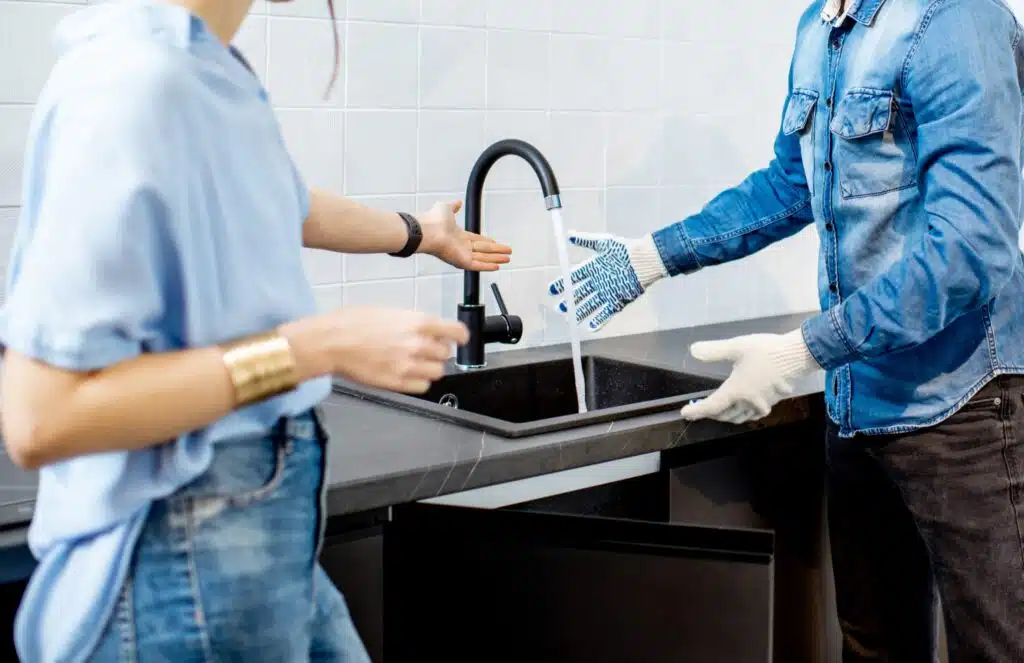Stormwater drainage plays a vital role in protecting homes, streets, and landscapes from damaging floodwaters. In Harrisburg and Lancaster, heavy seasonal rainfall can quickly overwhelm poorly designed systems, leading to costly property damage. By using the Best Stormwater Drainage Methods, excess rainwater is directed away from vulnerable areas, safeguarding both structures and the surrounding environment. Proactive planning ensures that communities remain resilient, even during intense downpours.
Flooding can erode soil, weaken foundations, and create dangerous conditions for residents. A well-designed drainage system minimizes these risks by capturing and redirecting runoff efficiently. For many Pennsylvania homeowners, these systems are essential investments that protect not only property but also peace of mind. Choosing methods suited to local weather patterns and soil conditions delivers the most reliable results.
In urban and suburban neighborhoods, impermeable surfaces like roads and driveways increase runoff volume. Without proper management, this water collects quickly, creating pools that damage landscaping and seep into basements. By implementing sustainable and effective drainage strategies, property owners can prevent such issues before they start. This forward-thinking approach is particularly important in high-rainfall months.
Ultimately, the Best Stormwater Drainage Methods combine efficiency, environmental responsibility, and adaptability to Pennsylvania’s changing weather. From French drains to rain gardens, each option offers unique benefits when planned and maintained correctly. The goal is to protect homes and streets while also preserving the natural beauty of the surrounding area. With the right systems in place, homeowners can face even the heaviest storms with confidence.
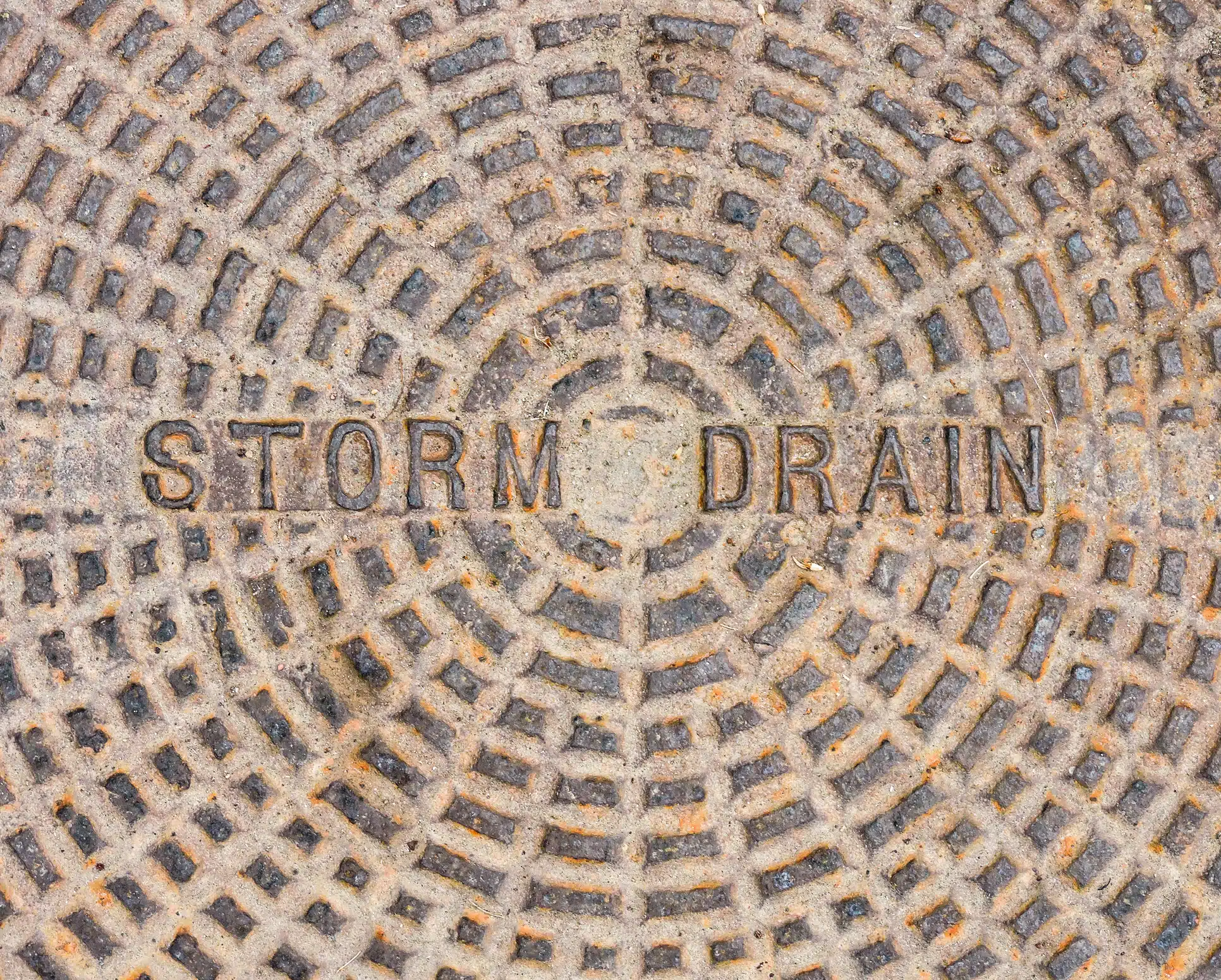
Understanding Stormwater Challenges in Central Pennsylvania
Central Pennsylvania faces unique drainage concerns due to its varied climate and weather extremes. In Harrisburg and Lancaster, sudden spring storms, heavy summer downpours, and seasonal snowmelt often test existing systems. These conditions can overwhelm even well-maintained drainage, leading to flooding, erosion, and property damage. This is why many homeowners turn to the Best Stormwater Drainage Methods for year-round protection.
Urban growth has increased impermeable surfaces, such as driveways, rooftops, and parking lots, which prevent natural water absorption. The resulting excess runoff places strain on municipal storm drains and home drainage systems. By adopting the Best Stormwater Drainage Methods, property owners can better manage water flow, protecting structures and landscapes from serious harm.
Seasonal snowmelt creates an additional challenge during late winter and early spring. Melting snow combined with rainfall increases runoff volume dramatically. Without the Best Stormwater Drainage Methods, this surge often overwhelms outdated systems, increasing the risk of basement leaks and landscape erosion. Preventive upgrades are essential to minimize these seasonal hazards.
Choosing the Best Stormwater Drainage Methods in Harrisburg and Lancaster means tailoring solutions to both the climate and property-specific factors. Soil conditions, elevation, and urban development all influence the ideal system. When carefully planned, these methods ensure long-lasting protection and help communities remain resilient through Pennsylvania’s unpredictable seasons.
French Drains: A Time-Tested Solution
French drains remain one of the Best Stormwater Drainage Methods for redirecting excess water away from vulnerable areas. This system uses a perforated pipe, surrounded by gravel, to collect and transport water efficiently. In Harrisburg and Lancaster, French drains work especially well in yards where water tends to pool after heavy rain. By moving water underground, they prevent erosion and protect foundations.
These drains are ideal for properties with clay-heavy soil that drains poorly. By incorporating French drains into the Best Stormwater Drainage Methods, homeowners can safeguard basements, landscaping, and hardscapes from costly water damage. The design allows for consistent performance during both sudden downpours and gradual snowmelt. This versatility makes them a trusted choice for long-term drainage control.
Installation requires careful placement to ensure water flows away from structures. In sloped areas, a French drain can be part of the Best Stormwater Drainage Methods by using gravity to enhance water movement. Professional installation helps avoid common mistakes, such as improper grading or insufficient pipe depth. Correct setup ensures maximum efficiency and longevity.
Maintenance for French drains is relatively simple but essential. Clearing debris from surface inlets and checking for clogs keeps the system functioning. When integrated with other Best Stormwater Drainage Methods, such as rain gardens or permeable paving, French drains offer even greater protection. This combination approach delivers both performance and environmental benefits, ensuring homes in Pennsylvania stay dry year-round.
Rain Gardens: Natural Beauty with Functional Benefits
Rain gardens are among the Best Stormwater Drainage Methods for combining visual appeal with effective water management. These shallow, landscaped depressions capture runoff from roofs, driveways, and lawns. In Harrisburg and Lancaster, rain gardens help reduce flooding while supporting pollinators and native plant species. They filter stormwater naturally, improving the quality of water entering local streams.
A well-planned rain garden can be part of the Best Stormwater Drainage Methods by slowing water flow and encouraging absorption into the soil. Native plants with deep root systems thrive in these gardens, breaking up compacted soil and increasing infiltration. This reduces standing water and minimizes the risk of mosquito breeding. Additionally, they enhance curb appeal, adding value to residential properties.
Site selection is critical to performance. Placing a rain garden in a low-lying area that receives runoff ensures it captures water effectively. By integrating this feature into the Best Stormwater Drainage Methods, homeowners create a sustainable solution that performs well during heavy storms and seasonal snowmelt. Professional guidance can help determine the best plant mix and depth for optimal results.
Rain gardens require minimal maintenance once established. Seasonal care includes removing weeds, replacing mulch, and trimming plants as needed. When combined with other Best Stormwater Drainage Methods, such as French drains or permeable paving, they provide both functional and ecological benefits. This makes them an excellent choice for environmentally conscious property owners in Pennsylvania.
Permeable Paving for Driveways and Walkways
Permeable paving is one of the Best Stormwater Drainage Methods for reducing runoff on driveways, patios, and walkways. Unlike traditional asphalt or concrete, permeable materials allow rainwater to seep through into the ground below. In Harrisburg and Lancaster, this helps relieve pressure on storm drains during heavy rainfall. It also reduces the risk of pooling water and icy patches in winter.
When included in the Best Stormwater Drainage Methods, permeable paving improves both functionality and aesthetics. Options such as permeable pavers, porous asphalt, and gravel blends suit a variety of property styles. These materials not only manage stormwater effectively but also provide a durable, attractive surface for everyday use. The result is a sustainable solution that enhances curb appeal.
Proper installation is essential to achieve the desired results. A well-designed permeable system includes layers of aggregate beneath the surface for water storage and filtration. Incorporating permeable paving into the Best Stormwater Drainage Methods ensures long-term performance and reduced maintenance needs. Local professionals can tailor the design to match Pennsylvania’s seasonal freeze-thaw cycles.
Permeable paving also supports environmental goals by filtering pollutants from runoff. This keeps harmful substances out of streams and rivers, improving water quality. When paired with other Best Stormwater Drainage Methods, such as rain gardens or French drains, it provides a comprehensive approach to flood prevention. This combination works especially well for residential and commercial properties in Central Pennsylvania.
Rainwater Harvesting Systems
Rainwater harvesting systems are an important part of the Best Stormwater Drainage Methods for managing excess water and conserving resources. These systems collect rainwater from rooftops and store it in barrels, cisterns, or underground tanks. In Harrisburg and Lancaster, harvested water can be used for irrigation, reducing demand on municipal supplies. This dual benefit supports both property protection and environmental responsibility.
When integrated into the Best Stormwater Drainage Methods, rainwater harvesting reduces the volume of runoff entering storm drains. By capturing water before it reaches the ground, these systems help prevent flooding during heavy rainfall. They also reduce erosion in gardens and landscaped areas. With proper filtration, collected rainwater can even be used for non-potable household purposes.
Installation requires consideration of local regulations and roof material compatibility. Storage size should be based on average rainfall patterns and intended water use. Including rainwater harvesting in the Best Stormwater Drainage Methods ensures a property benefits from both immediate flood prevention and long-term water savings. Professional installation can optimize performance and longevity.
Maintenance is straightforward but essential for continued efficiency. Regularly cleaning gutters, checking filters, and draining tanks before freezing temperatures prevents damage. When combined with other Best Stormwater Drainage Methods, rainwater harvesting offers an eco-friendly solution to stormwater challenges. This approach is particularly effective in Pennsylvania’s climate, where seasonal rains can be both abundant and unpredictable.
Integrating Multiple Drainage Solutions
Combining several strategies often delivers the strongest protection against flooding. In Harrisburg and Lancaster, weather conditions vary widely, making a single drainage system insufficient. By integrating solutions such as French drains, rain gardens, and permeable paving, property owners create a well-rounded defense. This layered approach not only manages runoff but also adds to a property’s visual appeal.
Each drainage method has strengths that complement the others. For example, permeable paving reduces surface runoff before it reaches a French drain, while rain gardens naturally filter overflow. These combinations can handle both heavy downpours and gradual snowmelt more effectively than any single method. The result is a system designed for year-round performance.
Effective integration begins with site-specific planning. Factors like slope, soil type, and landscaping features determine the best arrangement of systems. Choosing the Best Stormwater Drainage Methods for a property involves balancing efficiency with aesthetics. This ensures the final design works well in all seasons while maintaining curb appeal.
Regular maintenance keeps integrated systems functioning properly. Seasonal inspections, debris removal, and water flow checks are essential before high-rainfall periods. With the right planning and upkeep, combined drainage solutions provide lasting protection and contribute to healthier local waterways. This approach supports both property value and community resilience.
Protecting Foundations and Basements
Safeguarding a home’s foundation is a key reason many homeowners choose the Best Stormwater Drainage Methods. In Harrisburg and Lancaster, heavy rain and seasonal snowmelt can saturate soil around buildings, increasing the risk of water intrusion. Excess moisture often seeps into cracks, leading to basement leaks, mold growth, and even structural damage. Effective drainage systems prevent these issues by moving water away from vulnerable areas.
Protective solutions often include French drains, sump pumps, and properly graded landscaping. These systems redirect water flow and reduce hydrostatic pressure against basement walls. By controlling moisture, they help maintain indoor air quality and extend the life of the foundation. Older Pennsylvania homes with porous masonry especially benefit from these measures.
Early warning signs of drainage issues include water stains, damp odors, and pooling near the foundation. Addressing problems promptly prevents small concerns from turning into expensive repairs. Seasonal inspections and quick responses to signs of trouble are essential for long-term protection.
When combined with other Best Stormwater Drainage Methods, foundation protection becomes part of a comprehensive flood prevention plan. This layered approach ensures homes remain dry, stable, and safe during Pennsylvania’s unpredictable weather. By taking proactive steps, property owners can avoid costly damage while preserving both property value and structural integrity.
Preserving Landscapes with Proper Drainage
Proper drainage is essential for maintaining healthy landscapes, especially in areas with heavy seasonal rainfall like Harrisburg and Lancaster. Without it, water can erode soil, damage gardens, and create unsightly pooling. Over time, these issues reduce both the beauty and value of a property. Strategic planning helps keep landscapes lush and stable through changing weather.
Erosion control measures such as swales, rain gardens, and permeable paving slow runoff and encourage absorption. This prevents valuable topsoil from washing away and protects plant roots from excess moisture. By managing water naturally, these methods support both sustainability and long-term curb appeal.
Homes built on sloped properties face an even greater need for drainage solutions. Without stabilization, rainfall can carve deep channels into the ground, harming lawns and hardscapes. Careful system design ensures that water is guided away from vulnerable areas while preserving the yard’s natural contours.
Choosing the Best Stormwater Drainage Methods helps homeowners protect their landscapes from damage while promoting environmental health. With the right systems in place, gardens, lawns, and trees can thrive even during Pennsylvania’s heaviest storms. This proactive approach keeps outdoor spaces looking their best year-round.
Community Benefits of Stormwater Management
Effective stormwater management benefits more than just individual properties. In Harrisburg and Lancaster, well-designed systems help reduce street flooding during heavy rains. This improves safety for drivers and pedestrians while protecting public infrastructure. Communities with reliable drainage are also better prepared for extreme weather events.
By slowing and filtering runoff, stormwater systems improve local water quality. They help prevent pollutants like oil, fertilizer, and debris from entering rivers and streams. This supports healthier aquatic ecosystems and benefits recreational areas. Cleaner waterways also contribute to stronger tourism and local economies.
Public green spaces gain from proper stormwater control. Parks, trails, and community gardens are less likely to suffer erosion or standing water damage. This allows residents to enjoy outdoor spaces year-round, even after significant rainfall. Well-maintained infrastructure fosters community pride and participation.
When neighborhoods adopt the Best Stormwater Drainage Methods, the entire area becomes more resilient. These systems protect homes, businesses, and public areas from costly flood damage. Investing in effective drainage creates a safer, healthier, and more attractive environment for everyone.
Importance of Regular Drainage Maintenance
Even the most advanced drainage system will fail without proper upkeep. In Harrisburg and Lancaster, seasonal storms and changing weather can quickly impact performance. Leaves, debris, and sediment can clog pipes, reducing a system’s ability to move water effectively. Regular maintenance ensures drainage methods work when they’re needed most.
A key part of upkeep is seasonal inspection. Checking gutters, downspouts, and surface drains before heavy rainfall can prevent costly water damage. Early detection of blockages or erosion allows for timely repairs. This proactive approach saves both time and money in the long run.
Some maintenance tasks are simple but highly effective. Clearing debris, trimming vegetation around drains, and monitoring water flow patterns all contribute to optimal performance. Property owners who stay on top of these tasks enjoy more reliable flood protection year-round.
Choosing the Best Stormwater Drainage Methods is only the first step, maintaining them is what ensures lasting results. With consistent care, drainage systems continue to protect homes, landscapes, and communities from flooding. In Pennsylvania’s unpredictable climate, this ongoing attention is essential for peace of mind.
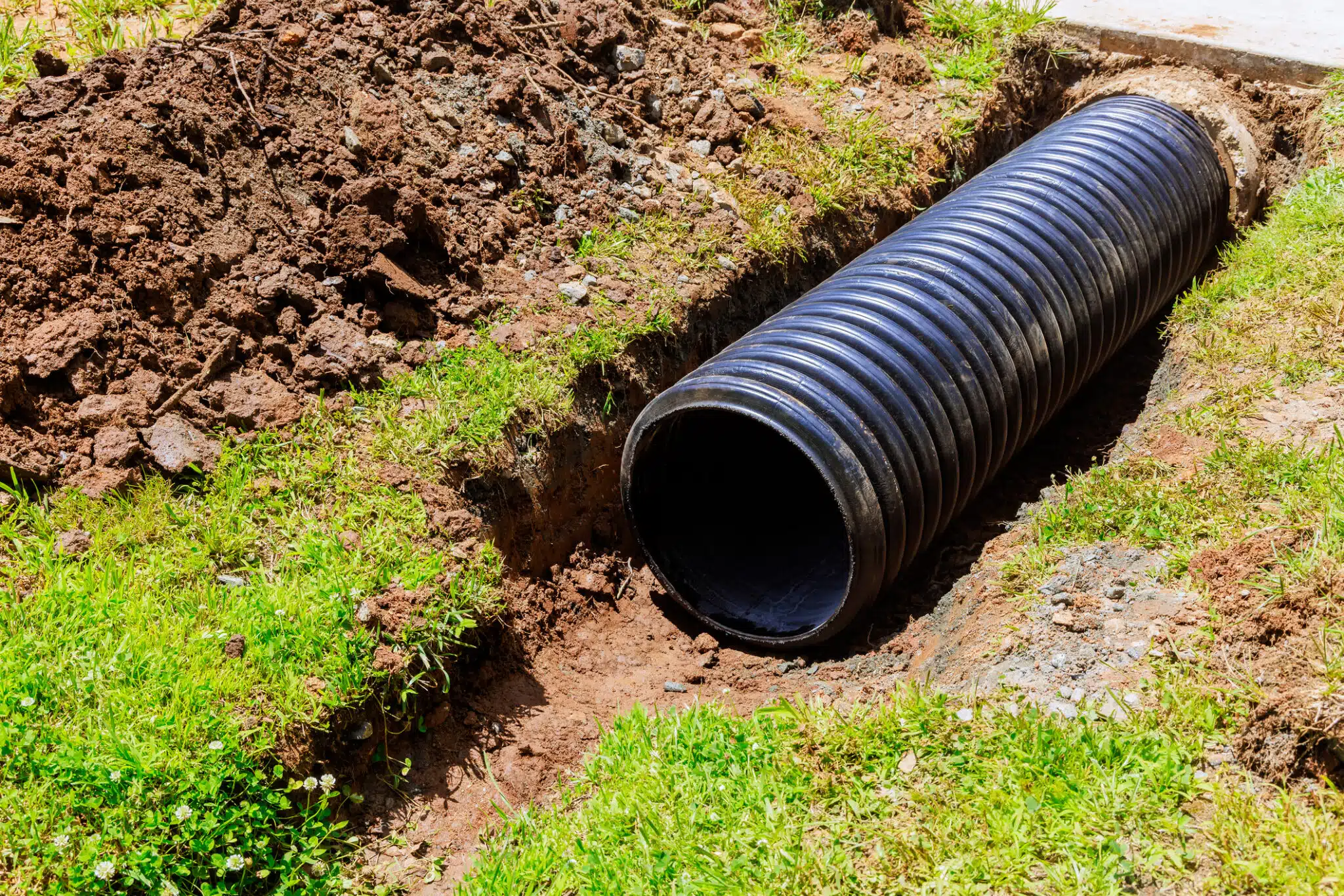
Choosing the Best Stormwater Drainage Methods
In Harrisburg and Lancaster, managing stormwater effectively is essential for protecting homes, landscapes, and public areas. From French drains to rain gardens, each solution offers unique benefits when matched to the right property. Combining different approaches often provides the most reliable defense against flooding and erosion. Thoughtful planning ensures systems perform well during both heavy rains and seasonal snowmelt.
Stormwater management is more than a home improvement project, it’s an investment in safety and long-term property value. Well-designed systems reduce repair costs, improve water quality, and enhance the appearance of outdoor spaces. Communities benefit from fewer street floods and healthier local waterways.
Homeowners should consider factors like soil type, slope, and climate when deciding on the right solution. Consulting professionals ensures proper installation and compatibility between different drainage methods. This tailored approach delivers better performance and longer-lasting results.
Choosing the Best Stormwater Drainage Methods now can save property owners significant stress and expense later. Contact Benjamin Franklin Plumbing of Lancaster, PA, to design, install, and maintain drainage systems that keep properties safe and dry. With the right solutions in place, residents can face even the heaviest storms with confidence.
Frequently Asked Questions
What are the Best Stormwater Drainage Methods for homes in Pennsylvania?
The best options include French drains, rain gardens, permeable paving, and rainwater harvesting systems. These solutions manage runoff, reduce flooding risks, and protect landscaping. The ideal choice depends on your property’s slope, soil type, and local rainfall patterns. A professional assessment can help determine the most effective combination.
How often should stormwater drainage systems be inspected?
In Harrisburg and Lancaster, inspections should be performed at least twice a year, once before spring rains and once before winter snowmelt. Seasonal maintenance helps identify clogs, erosion, or other issues early. This ensures your system is ready to handle heavy precipitation events.
Can I combine different drainage methods for better results?
Yes, integrating multiple systems often delivers the best performance. For example, permeable paving can reduce surface runoff, which is then directed into a French drain or rain garden. This layered approach improves efficiency and resilience during intense storms.
How do stormwater systems benefit the community?
Proper drainage not only protects individual properties but also reduces street flooding and improves water quality. By slowing runoff and filtering pollutants, these systems support healthier local streams and rivers. This benefits public spaces, wildlife, and overall community safety.
Who can install and maintain stormwater drainage systems in Lancaster, PA?
For expert design, installation, and upkeep, contact Benjamin Franklin Plumbing of Lancaster, PA. Our team understands the unique stormwater challenges in your area and can recommend solutions that work for you year-round.








